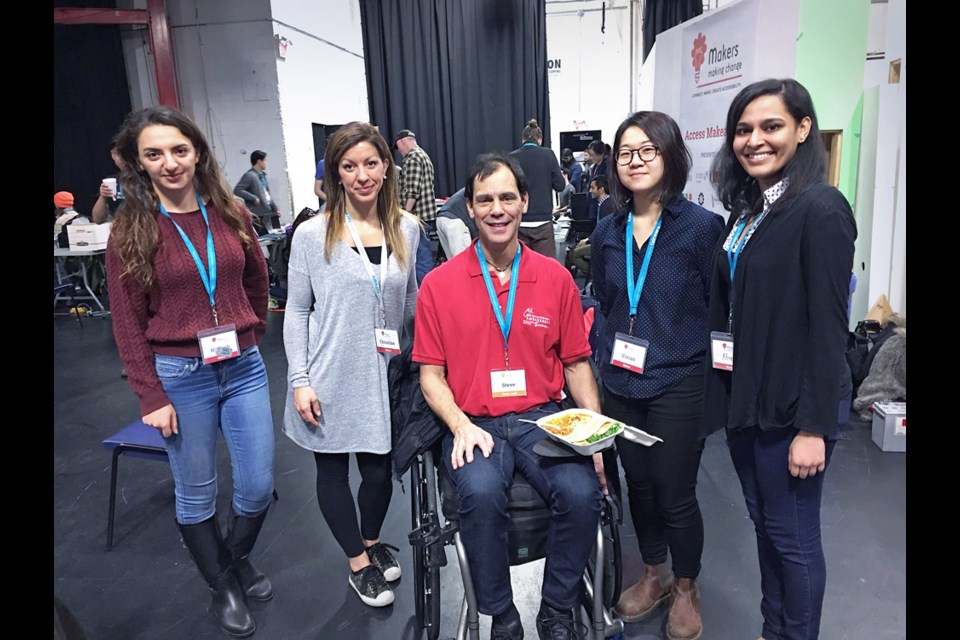As far as problems go, it wasn’t a huge one, but every time Burnaby resident Steve Grout wheeled his chair over thick movie-theatre carpets, he ended up with a lapful of greasy popcorn.
His chair had a cup holder, but nothing to hold his bag of popcorn while his hands were busy wheeling.
Thanks to an event put on by the Burnaby-based Neil Squire Society in Vancouver in January, Grout got to huddle with a team of UBC and SFU engineering students to find a solution.
The event, Access Makeathon, brought together about 50 engineering students from the Women in Engineering and Young Women in Science and Engineering programs at UBC and SFU’s School of Interactive Arts and Technology in the Vancouver Hack Space.
They were divided into teams, connected to a person with a disability and tasked devising a solution to a real-world problem.
The goal at the end of the 48-hour event was for each person with a disability to leave with a working prototype that improved their quality of life.
“I challenged them to come up with something that could hold my bag of popcorn, so I could wheel freely,” Grout told the NOW. “They made it so I can hold a plate of food as well.”
Other challenges teams worked to solve included coming up with a customized controller for a Wii gaming system, improvements to an off-road wheelchair and a better way to secure an empty wheelchair in a car.
The challenges people with disabilities face are often unique and individual, according to Neil Squire development director Chad Leaman, and finding solutions is often costly.
“For those personal things, there’s not really great funding for that,” he said.
Access Makeathon gave the participants with disabilities a chance to access solutions particular to their needs.
The engineering students, meanwhile, got an opportunity to put their education to work in a practical way.
“It was a chance for them to apply their knowledge and skills to actually make a difference in someone’s life,” Leaman said.
Ultimately Neil Squire hopes to establish its new Makers Making Change website as a kind of catalogue of assistive technology projects like Grout’s.
The designs will be open-source, Leaman said, so any engineer or maker anywhere will be able to make them for a person with a disability for just the cost of parts.
In the meantime, the society’s first Access Makeathon was inspirational as well as useful for Grout.
“It was just a very vibrant, energetic, exciting, positive atmosphere,” he said.



